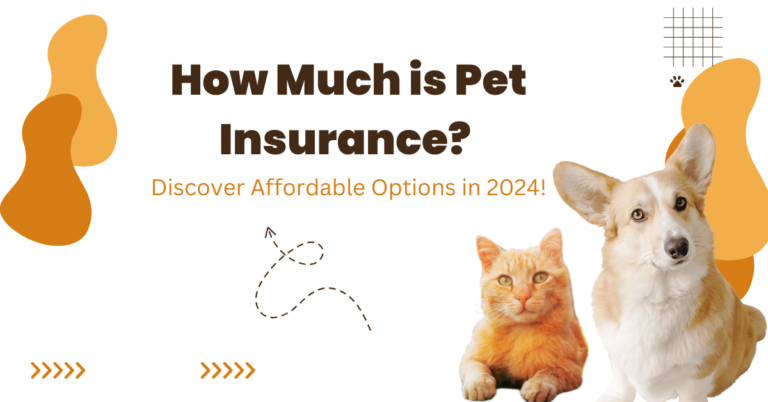7 Best Foods for Cats: Healthy and Delicious Choices for Every Feline
Introduction
Finding the right food for your furry friend is a big deal. Many cat owners wonder, “What are the best foods for my cat?” It’s not always easy to pick the perfect meal options that keep them healthy and happy.
Good news: this article has answers! We’ll explore human foods that are safe and nutritious for your kitty. With at least 75 percent moisture, canned cat food is a great choice, but there’s more to learn about feline nutrition.

I’m an expert in pet care with years of experience helping cats thrive on balanced diets. My background includes deep knowledge of what makes up a healthy cat diet and how certain human foods can benefit our feline friends.
From premium cat food to homemade treats, I’ve seen firsthand what works best for different types of cats. Ready to make mealtime exciting? Let’s find out together what suits your pet best!
Key Takeaways
- Cats need meat because they are obligate carnivores.
- Some human foods like cooked chicken, beef, fish, and pureed veggies are good for cats.
- Be careful with food allergies and avoid toxic foods like onions and garlic.
- Always talk to a vet before giving your cat new foods.
- Start with small amounts of new food and watch how your cat reacts.
Understanding a Cat’s Dietary Needs
Cats are obligate carnivores, which means their diet should mainly consist of animal-based proteins. They may have common food allergies that can affect their health.
Cats as obligate carnivores
Cats need meat to live. They are obligate carnivores. This means their bodies are made to digest and use nutrients from animal-based foods. My own cat thrives on a diet rich in meats, just like nature intended for felines.
From personal experience, I’ve seen how well she does with meals that have plenty of protein from sources like chicken or turkey.
Meat gives cats vital vitamins and minerals they can’t get enough of from other types of food. For example, cooked, unseasoned beef or fish not only offer protein but also omega-3 fatty acids, which support their health in many ways.
These foods meet the dietary needs set by experts for a balanced cat diet, ensuring our furry friends stay healthy and happy.
Common food allergies in cats
Cats, as obligate carnivores, have specific dietary needs. Common food allergies in cats can cause digestive issues, itchy skin, and ear infections. Some common culprits for cat food allergies include beef, dairy products, fish, and wheat.
Even though cats enjoy certain human foods like milk or cheese, many of them are lactose intolerant as adults. It’s also important to remember that some human foods can be toxic to cats; for example, onions and garlic can cause anemia in felines.
It’s essential to consult with a veterinarian if you suspect your cat has food allergies. Your vet may recommend an elimination diet or allergy testing to pinpoint the problematic ingredient.
By incorporating safe human foods into your cat’s diet while being mindful of potential allergens like those mentioned above will help keep your furry friend healthy and happy.
Best Human Foods for Cats
Cats can eat cooked, unseasoned chicken or turkey. They can also have cooked, unseasoned beef and fish. Additionally, cats can enjoy cooked, pureed vegetables like pumpkin, broccoli, green beans, peas, carrots, and spinach as part of their diet.
Cooked, unseasoned chicken or turkey
Cooked, unseasoned chicken or turkey is a great source of protein for cats. It provides essential nutrients like vitamin B6, selenium, and phosphorus that are beneficial for their overall health.
These meats can be an important part of a cat’s diet and are often found in commercial cat foods. When feeding your cat chicken or turkey, remember to serve it without any seasoning as excessive salt or spices can be harmful to their health.
Offering cooked, unseasoned chicken or turkey in moderation can provide cats with the necessary nourishment they need.
Cooked, unseasoned beef
Beef is a good source of protein for cats, it can provide essential nutrients like vitamin B6, selenium, and phosphorus. Beef helps in building strong muscles. It’s important to feed cooked beef without any seasonings or additives to ensure its safety for cats.
Remember to consult with a veterinarian before introducing beef into your cat’s diet and consider portion control. Incorporating small amounts of cooked, unseasoned beef in your cat’s meal options can provide them with necessary nutrients.
Cooked, unseasoned fish
Cooked, unseasoned fish is a good source of protein and omega-3 fatty acids for cats. It provides essential nutrients like vitamin D, vitamin B6, selenium, phosphorus, and potassium.
Salmon is commonly found in commercial cat food as it offers a tasty treat for the feline friends while providing necessary nutritional benefits. The omega-3 fatty acids in fish can help promote healthy skin and fur in cats.
Salmon being rich in protein makes it one of the nutritious cat treats that also aids in maintaining muscle mass and strength. When serving cooked fish to your cat, ensure it’s plain without any added seasonings or spices which may not be suitable for their digestion.
Always consult with your veterinarian regarding recommended portions based on your cat’s individual needs and dietary requirements.
Cooked, pureed pumpkin
Cooked, pureed pumpkin can be a beneficial addition to your cat’s diet. It contains fiber and vital nutrients like vitamin A, which is essential for your cat’s eye health. Pumpkin also aids in digestion and can help with hairball control.
Adding a small amount of cooked, pureed pumpkin to your cat’s food can provide these benefits without causing any harm. Always consult with your veterinarian before introducing new foods into your cat’s diet.
Incorporating cooked, pureed pumpkin into your cat’s meals can provide additional fiber and important nutrients such as vitamin A for their eye health. Moreover, it can assist in maintaining healthy digestion and controlling hairballs when added in appropriate amounts after consulting with a vet.
Cooked, pureed broccoli
Pureed broccoli is a safe and healthy human food for cats. It’s packed with nutrients like vitamin C, K, and fiber to support your cat’s overall health. Broccoli can be served pureed as a special treat or mixed into their regular meals for added nutrition.
As always, it’s crucial to introduce new foods gradually and in small amounts to ensure that your cat tolerates it well.
When considering incorporating pureed broccoli into your cat’s diet, consult with your veterinarian to make sure it aligns with their dietary needs and doesn’t pose any risks to their health.
Moving on from the benefits of feeding cats cooked, pureed broccoli, let’s discuss the importance of portion control when offering human foods to cats.
Cooked, pureed green beans
Green beans, when cooked and pureed, can be a safe human food for your cat. They provide fiber, which aids in digestion and helps prevent constipation. A small amount of green beans in your cat’s diet can contribute to their overall health and well-being.
However, it is important not to overfeed them with too many green beans as it may upset their stomach.
Cats don’t need a lot of vegetables in their diet as they are obligate carnivores, but including some cooked pureed green beans occasionally can provide some added nutrients and variety to their meals.
Always consult with your veterinarian before introducing new foods into your cat’s diet to ensure that you’re making the best choices for their nutrition.
Cooked, pureed peas
Peas are a good source of vitamins and minerals for cats. They contain vitamin A, vitamin K, and several B vitamins which help in keeping your cat healthy. Peas also provide fiber, which is crucial for digestive health in cats.
However, it’s important to introduce peas slowly into your cat’s diet to make sure they don’t cause any stomach issues. Remember to consult with a veterinarian when introducing new foods into your cat’s diet.
Including cooked and pureed peas in moderation can be a safe way to offer essential nutrients to your feline friend.
Cooked, pureed carrots
Cooked, pureed carrots are safe for cats to eat. They are packed with beta-carotene, which is good for their eyes and skin. Carrots also contain fiber, which helps with digestion and prevents constipation.
When feeding your cat cooked, pureed carrots, always make sure they are not seasoned or mixed with any other ingredients that could be harmful to them. Serve only a small amount at first and watch for any signs of allergies or digestive upset before increasing the portion.
Carrots can be a healthy addition to your cat’s diet in moderation, offering nutrients that support overall health and well-being. Including a variety of safe human foods like pureed carrots can provide additional beneficial nutrients to complement your cat’s regular diet.
Cooked, pureed spinach
Spinach is rich in vitamins and minerals beneficial for cats. It contains vitamins A, C, and K, as well as iron and calcium. These nutrients contribute to a cat’s overall health. Spinach also provides dietary fiber that can help with digestion.
However, spinach should be fed in moderation due to its oxalic acid content, which can hinder calcium absorption in large amounts.
Consider offering small portions of cooked, pureed spinach as an occasional treat for your cat. Always consult with your veterinarian before introducing new foods into your cat’s diet to ensure they are safe and suitable for your pet.
Moving on from “Cooked, pureed spinach,” let’s delve into “Considerations When Feeding Human Foods to Cats.
Considerations When Feeding Human Foods to Cats
When introducing new foods to your cat, it’s important to start with small portions and monitor for any signs of allergies or digestive issues. Always consult with a veterinarian before making significant changes to your cat’s diet.
Portion control
To keep your cat healthy, it’s important to control the amount of food they eat. Giving them too much can lead to obesity and health issues. A good rule is to feed an average-sized adult cat about 200-300 calories per day.
The portion size will depend on the specific food you’re feeding, so always check the label for guidelines on how much to serve. It’s crucial not to overfeed your cat with human foods – even though some are safe for cats, moderation is key.
Feeding cats small portions several times a day helps maintain their weight and keeps them satisfied. This practice mimics how cats eat in the wild where they hunt and consume multiple small meals each day.
Remember, staying mindful of portion sizes will help keep your feline friend stay fit and happy.
Introducing new foods slowly
When introducing new foods to your cat, it’s essential to do it slowly. This helps in preventing any stomach upset or adverse reactions. Start by giving a small amount of the new food and observing how your cat reacts over several days.
By doing this, you can monitor if there are any signs of allergies or digestive issues. If everything seems fine, gradually increase the portion size while still monitoring for any negative reactions.
It’s important to remember that sudden changes in a cat’s diet can cause gastrointestinal problems, so it’s best to introduce new foods gradually. According to experts, this slow approach allows a cat’s digestive system time to adjust and reduces the risk of dietary upsets.
Following these steps ensures that your cat adjusts well and stays healthy when trying out something new for their meal.
Consulting with a veterinarian
Before feeding your cat human foods, it’s important to consult with a veterinarian. They can provide guidance on the best foods for your cat based on their specific dietary needs. Veterinarians can also advise you on portion control and how to introduce new foods slowly into your cat’s diet.

Additionally, they can help you understand any potential food allergies or sensitivities that your cat may have so that you can avoid harmful ingredients.
When considering incorporating human foods into your cat’s diet, consulting with a veterinarian is crucial to ensure that you are providing a balanced and safe meal plan for your furry friend.
It will help prevent any adverse health effects and make sure that the food choices meet the necessary nutritional requirements for your cat’s well-being.
FAQs
1. What are some safe human foods for my cat?
Safe human foods that your cat can eat include cooked chicken, turkey, and fish. Remember to remove any seasoning before giving it to your cat.
2. What should I look for in the ingredients of cat food?
When choosing a meal option for your cats, make sure the first ingredient listed is a high-quality source of animal protein such as chicken or fish.
3. Are there any specific foods that are best for my cat?
The best food options depend on your pet’s age, health status and preferences but generally, wet food with high moisture content is beneficial for cats.
4. Can I only feed my cat with human food?
While certain human foods are safe and healthy for cats, they should not replace specially formulated cat-friendly foods which contain all essential nutrients needed by felines.
Conclusion
In summary, knowing the best foods for your cat is crucial. Cats need a diet rich in protein and moisture. Cooked meats like chicken and turkey, along with fish and pureed vegetables, can be safe options.
Yet, it’s essential to consult with a veterinarian before making any changes to your cat’s diet. Keep in mind that portion control and slow introductions are key when feeding human foods to cats.





One Comment
Comments are closed.